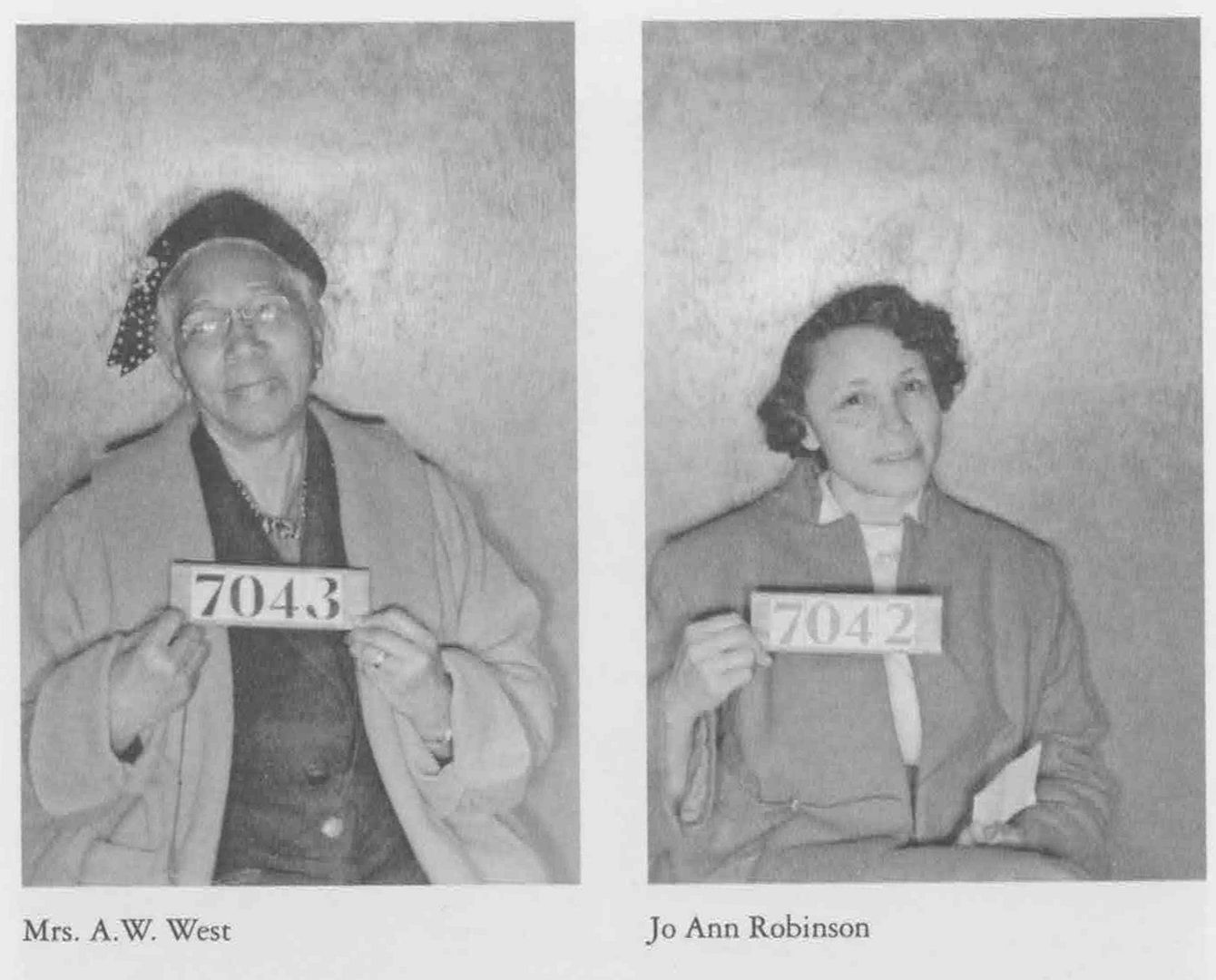Remembering the Black Women Who Made the Montgomery Boycott Possible

by Marco McWilliams for RI Future
Seventy years ago a black woman named Geneva Johnson was arrested on a Montgomery, Alabama public transit bus for allegedly having an incorrect bus fare and daring to display improper social decorum by “talking back” when the white driver scolded her. It was not uncommon for bus drivers to rob black riders at the pay meter. Historian Danielle McGuire notes: “Drivers shortchanged African Americans, then kicked them off the bus if they asked for correct change.” In the coming years, Montgomery would see the arrest of many more black women — Viola White, Claudette Colvin, Katie Wingfield — and even children who dared to challenge entrenched white power by violating the city’s segregation laws on the public bus lines through their refusal to vacate seating reserved for white passengers.
Out of Montgomery’s black population, which numbered nearly fifty thousand, more than half of all the black women laboring outside of their homes found paid work as domestics in white homes, far beyond the economic safe haven of labor protection laws or a union. Unable to afford private transportation due to their shamefully low wages, black domestics relied heavily upon the city’s public transportation system. Herein, as a directly affected group, black domestic workers became the all-important foot soldiers of the Montgomery bus boycott. The thoroughly networked social lives of domestic workers proved to be an invaluable resource for the success of the boycott. As seasoned guerrillas, black women clandestinely transported food, items, and, most critical to the boycott, key information gradually gleaned from white conversations eavesdropped upon.
Photo credit: loveisntenough.com
No comments: